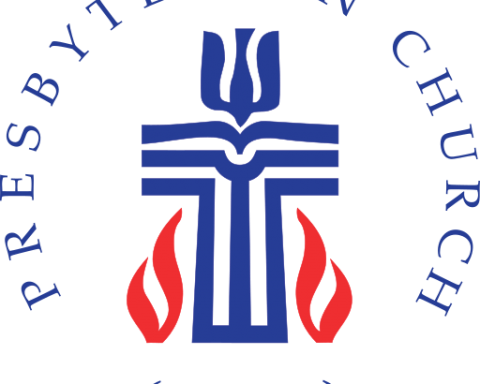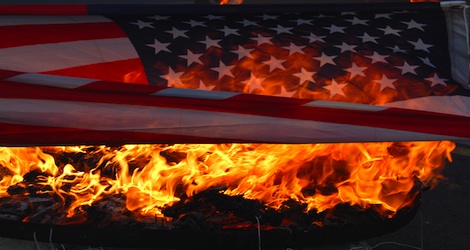Marriage Equality
Items 07-17 and 07-18: Encouraging Continued Dialogue and Mutual Forbearance
Approved with amendment by the Assembly. These items, as amended, acknowledge the differences that exist among Christians regarding committed, same-gender relationships; states that the PC(USA) does not have one scriptural interpretation on this matter; and call upon the church to continue in respectful dialogue.
Answered with action on another resolution: 13-NB (New Business). These items overtured the Assembly to amend W-4.9000 to redefine Christian marriage to include covenants between persons of the same gender, by replacing “a man and a woman” with “two people”. In substance, these items went unanswered – no decision was made either way. Instead, all items in Committee 13 on Civil Union and Marriage Issues were answered by the Assembly’s decision to move the PC(USA) “into a season of serious study and discernment concerning its meaning of Christian marriage” for the next two years—in the interests of preserving the “peace, unity, and purity of the church.”
ACSWP Advice and Counsel pointed to the PC(USA)’s historic commitment to advocating equality under the law, to pastoral care and welcome for all people including same-gender couples and LGBT individuals, and to an understanding of marriage and family as shaped by historical and cultural developments (and as an evolving institution in the biblical witness). The church has offered its blessing to same-gender unions and committed itself to the wellbeing of children in same-gender unions as it has to all children. It has envisioned a church and society that welcomes and nurtures all and that does not value some more highly than others based on sexual orientation or any other qualification. But these policies, such as Transforming Families, have not included same-gender couples in the church’s understanding of marriage, meaning these items propose a new policy. Thus, the question remains whether the church’s commitment to equality of civil rights for same-gender persons requires the church itself to receive such relationships into its body on an equal basis.
Answered with action on another resolution: 13-NB. These items overtured the Assembly to provide an authoritative interpretation permitting clergy and commissioned ruling elders to officiate at services of Christian marriage for same-gender persons in those states where church marriages are legal. Since these proposed, not a change to, but an interpretation of, the Book of Order, this ruling would not have required ratification by the presbyteries. These items would not have changed the definition of marriage, but would have yielded pastoral discretion to teaching elders and to sessions, which could elect to perform or not perform marriages. In substance, these items went unanswered – no decision was made either way. Instead, all items in Committee 13 on Civil Union and Marriage Issues were answered by the Assembly’s decision to move the PC(USA) “into a season of serious study and discernment concerning its meaning of Christian marriage” for the next two years—in the interests of preserving the “peace, unity, and purity of the church.”
ACSWP Advice and Counsel noted that PC(USA) policies have consistently called for equal civil rights for LGBT persons. The church has supported civil unions as one means of achieving this equality, and has blessed these unions in a service of worship. However, it has previously maintained a distinction between marriage that conferred a new status on the couple and the blessing of a civil union that existed prior to the blessing. Because, in fact, civil unions have not guaranteed same-gender couples equal civil rights, the quest for civil marriage continues. Eight states and the District of Columbia have legalized same-gender marriage, bringing church members in same-gender, committed relationships to their pastors for the same gift of marriage that the church has said “God [gives] to all humankind.” These overtures supported the church’s commitment to civil equality and nondiscrimination. They also recognize the complementarity that has long existed in the Reformed Tradition between the role of the state in legalizing marriage and the role of clergy who pronounce a couple married and sign their state license. None of these items would have compelled pastors to officiate, and none would have applied to states that have not legalized same-gender marriage.
Items 13-07, 13-12, and 13-13: Affirming the Definition of Marriage as Between a Man and a Woman
Answered with action on another resolution: 13-NB. These items overtured the Assembly to affirm the church’s definition of marriage as a covenant between a man and a woman. Items 13-07 and 13-12 sought an authoritative interpretation of W-4.9001; Item 13-13 proposed amending W-4.9001 and stipulated that any changes to that section would require a super-majority vote by presbyteries. In substance, these items went unanswered – no decision was made either way. Instead, all items in Committee 13 on Civil Union and Marriage Issues were answered by the Assembly’s decision to move the PC(USA) “into a season of serious study and discernment concerning its meaning of Christian marriage” for the next two years—in the interests of preserving the “peace, unity, and purity of the church.”
ACSWP Advice and Counsel noted that W-4.9000 already and clearly defines marriage as a covenant between a man and a woman. Additionally, Item 13-13 would have subjected one part of the Book of Order to a standard not required by other parts. In fact, it would have elevated this issue to the same two-thirds majority required for adopting new confessions of the church. Such a change would have affected our historical understanding of majority rule.






Unbound Social